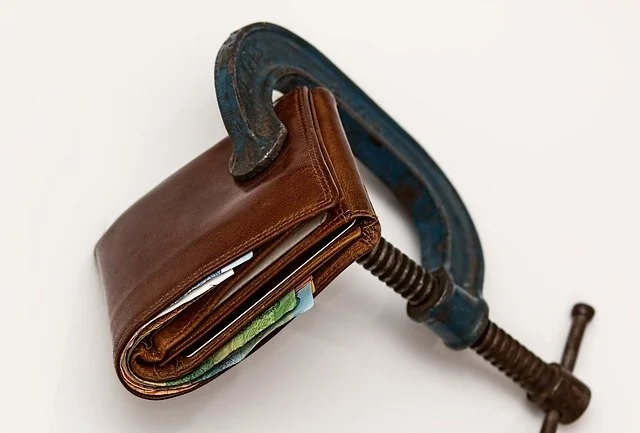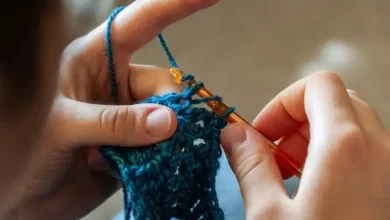How to stop buying unnecessary things and wasting money

Many people are faced with the fact that earned with great difficulty; the money disappears into nowhere. It would seem that the salary has recently come to the card, and now there are only funds left for travel and food. Why does money “slip through your fingers,” and is it possible to stop somehow buying unnecessary things?
Impulsive buying: why are we wasting money?
Usually, money “disappears” because a person tends to make impulsive purchases. When he comes to the store, he begins to sweep things off the shelves that he does not need. For example, women can buy up mountains of cosmetics that they won’t wear and clothes that they can only wear a couple of times.
Men make impulse purchases less often. But they can also spend money on all sorts of gadgets, expensive but essentially unnecessary.
Several reasons lead people to spend money in this way:
- Depression. By making a purchase, you can cheer yourself up for a while. True, this effect does not last long, and to stabilize his mood again, the person goes to the store again;
- Infantilism. A person who does not know how to plan a budget buys all kinds of “toys” for himself, while not thinking about what to pay the bills, buy clothes and shoes, quality products, etc .;
- Desire to feel rich. Littering with money at least once a month, many try to feel like rich, wealthy people;
- Attempts to raise their status in society. It is worth recognizing that we acquire many things only because they are a kind of sign of high status. Expensive designer clothes are not necessary, but having them increases self-esteem.The same can be said for the latest luxury gadgets, perfumes and cosmetics. These things are often bought not by rich people who want to become the owner of an expensive outfit or a smartphone, but by those who want to feel that they belong to the “elite”;
- Inability to plan your budget. This problem is characteristic of young people who have recently begun to live separately from their parents and earn money. They are used to the parents planning the budget and spending their own money on entertainment. Having started to receive a salary, they habitually continue to spend it on something pleasant, forgetting that there are more pressing expenses.
Knowing the motives that lead to rash purchases, you can draw up a program to combat your “addiction.”
Disguised depression and impulsive buying
If the problem is related to severe depression when a person is trying to improve his condition by buying unnecessary things, working with a psychologist can help. Depression is a bigger problem than many people think. The following symptoms indicate its presence:
- lack of interest in life;
- inability to receive joy, experience positive emotions;
- insomnia or, conversely, the need for prolonged sleep;
- loss of strength, feeling of weakness;
- decreased ability to concentrate.
Depression often develops after a stressful experience, such as the loss of a loved one. If the need to make impulsive purchases is accompanied by the signs listed above, it is worth talking to a specialist. Otherwise, the disease can become chronic, and it will be almost impossible to get rid of it.
Infantilism and unplanned spending
Even quite older people who have lived an independent life for a long time can be frivolous about money. Changing yourself is not easy, especially if there is no genuine desire to change. After all, it is difficult to exchange the opportunity to please yourself with expensive “toys” for careful budget planning.
The following methods can help:
- making a shopping list before each trip to the store;
- Do not take a credit card to the store. If the problem of impulsive spending is very acute, you can withdraw money from the card and go shopping only with cash. Thus, it will simply not be possible to spend more than planned;
- accounting of income and expenses. The easiest way to do personal bookkeeping is to use special smartphone apps;
- Allocation of a fixed amount for unplanned purchases. It would be best if you decided for yourself how much money you are willing to spend on things that you do not need but which you want to possess. This must be done. After all, living under strict restrictions is not easy, and the forbidden fruit is very sweet. Such a measure helps not to “break” and again not to spend an excessive amount on something for which there is no need.
Desire to demonstrate your status or feel “rich”
Work on yourself will help to cope with the problem. Answer the questions:
- why your self-worth depends on the things you have;
- how you will feel if you do not have “status” items;
- Will your loved ones’ attitude change towards you if you stop spending money on expensive but unnecessary “luxury goods”?
As a rule, the main problem of people trying to create the impression they need with the help of expensive things is low self-esteem. Sometimes it takes long work and communication with a psychologist to stop associating oneself with purchased expensive items and get rid of addiction.
How to learn to plan your budget?
This is a skill that every person must master. To get things done and stop wasting money, you can follow these tips:
- read books on planning your home budget. In them, you can glean a lot of valuable ideas that will help you learn how to save;
- Do not go to the store without a shopping list;
- Do not go shopping when you are hungry. It may seem surprising, but it is proven that people who visit the store when hungry spend much more money than those who eat a hearty lunch;
- Make it a habit to save small amounts from each paycheck. At the end of the year, you can either spend all that money on a big purchase or keep saving for your dream. At the same time, having such a “financial cushion” will help you feel confident in the future;
- Try to understand the reasons that lead you to make impulse purchases. Indeed, in this way, a depressive disorder, personality immaturity or an inferiority complex can manifest itself. Until the main problem is solved, it won’t be easy to cope with yourself;
- Be sure to install an app to help you plan your budget. Such applications can be linked to the card to take into account all the expenses made. At the end of the month, the application reports exactly how and what you are spending your money on. Sometimes this information makes you think about the expediency of your acquisitions and identify where exactly the money is “flowing.”
Impulse buying is a problem for many people. But it is quite possible to cope with it. Sometimes this may require the help of a specialist since it may well be about psychological dependence. Do not be afraid to contact a psychologist, because thanks to him, you can learn how to spend wisely and get rid of personal problems that worsen the quality of your life!




